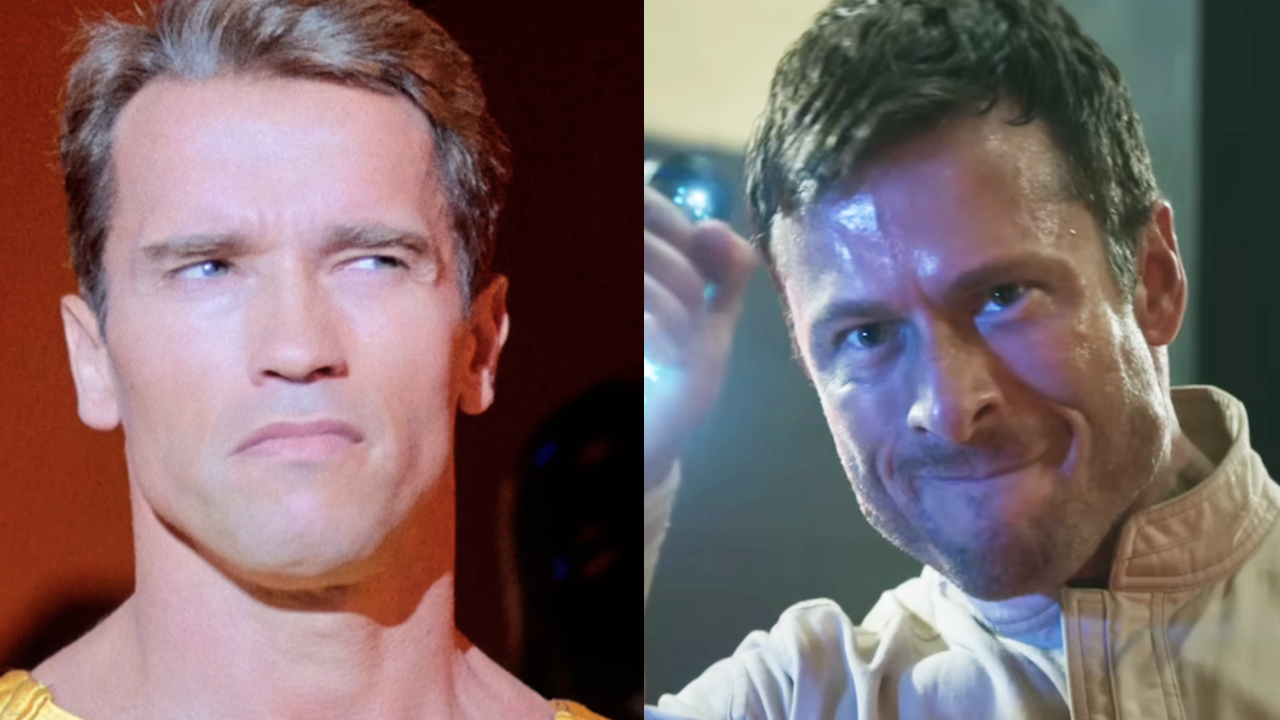The story of The Running Man has traveled a long way since its early incarnation. What started as a grim, pulse-pounding novel by Stephen King under the name Richard Bachman in 1982 has turned into two different interpretations of the story’s tone and message. The 1987 Arnold Schwarzenegger film brought a wild, neon action approach. The new 2025 remake by Edgar Wright aims for something closer to the source material while still updating the narrative for modern audiences.
All three versions of The Running Man share the same foundation. However, the way they treat Ben Richards, the dystopian world around him, and especially the ending, makes each interpretation feel distinct.
The Running Man Book: A Harsh and Unforgiving Dystopia
The original The Running Man novel isn’t interested in comfort or happy endings. It imagines a future where society is deeply divided, the poor are pushed to desperation, and entertainment is designed to distract the public from the cruelty around them. Ben Richard isn’t a muscle-bound action hero. He’s an everyday man with a sick kid and no options. Entering the deadly game show is the only way he can attempt to earn enough money to keep his family alive.
From start to finish, the book maintains a relentless pace. The hunters chasing Richards feel impossible to escape, and King never allows readers to believe he’ll find relief. By the end, Richards is injured, grieving, and completely aware that the system has already taken everything from him. His decision to hijack a plane and crash into the headquarters of the corrupt Network is a final act of rage rather than victory.
The book ends with fire, destruction, and a lingering sense that the governing bodies have created the game beyond repair. It’s bleak, intense, and what fans expected of early Bachman-era King.
The 1987 Movie: Big, Loud, and Designed to Cheer
When Hollywood adapted The Running Man in 1987, the tone changed immediately. The film keeps the basic televised death game idea but shifts nearly everything else.
Schwarzenegger’s Ben Richards is a former cop who’s been framed for a violent crime. This version of the character is confident, physically dominant, and more in control of his fate than the original. The hunters are more colorful than terrifying, and the entire production leans into the spectacle of late-eighties action cinema. Kind of cheesy, kind of intense.
The ending is perhaps the biggest difference in the original The Running Man movie. Instead of dying in a fiery crash, Richards triumphs. He defeats the hunters, exposes the corruption behind the scenes, kills the game show host, and walks away with the admiration of the crowd and the promise of a better, brighter future. It’s the polar opposite of the book.
The movie trades the novel’s social commentary for a victory that feels larger than life. For many viewers, this version is the most memorable simply because it’s pure entertainment, even if it barely resembles King’s original vision.
The 2025 Remake: A Modern Middle Ground
Edgar Wright’s 2025 remake of The Running Man approaches the material with a fresh perspective while respecting the spirit of the original book. This version stars Glen Powell, and brings back the intense, media-obsessed world of King’s story, but filters it through Wright’s energetic style and sharper social commentary. Ben Richards feels more like an ordinary person caught in extraordinary circumstances, which brings the character closer to his literary roots.
The remake is foreboding, bringing the sense that the entire society is watching the game show, reacting to it, and treating it like a national event. The atmosphere is tense with emotional weight, but it avoids the excessive bleakness that defined the book. Wright builds a version of the story that feels modern without abandoning the qualities that made King’s original premise memorable.
In the end, each version of The Running Man offers a different answer to the same question: can one person fight a corrupt system? Each interpretation has its own appeal, and together they create a fascinating history for a single story told three different ways.

